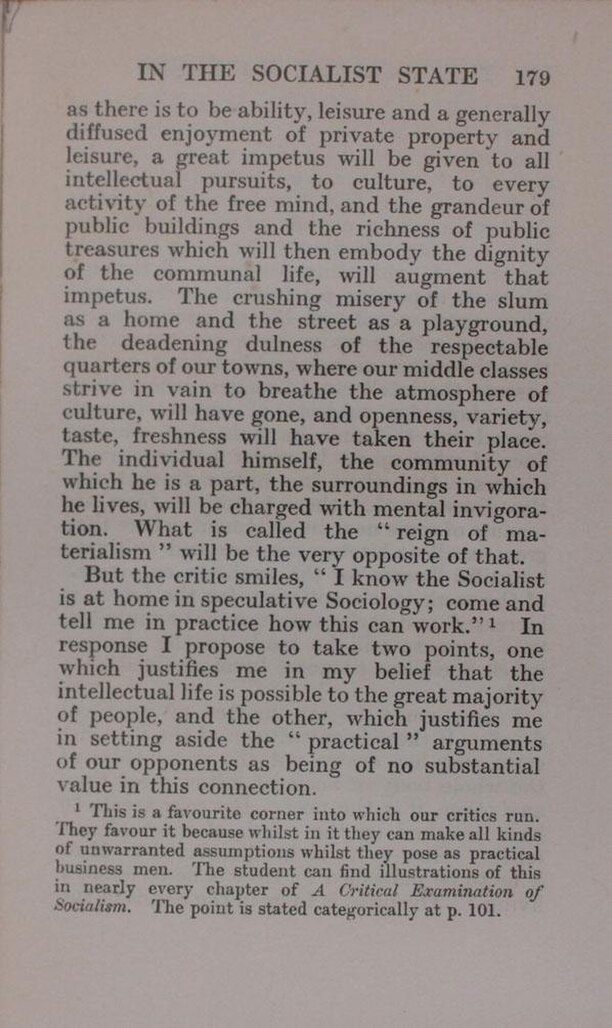as there is to be ability, leisure and a generally diffused enjoyment of private property and leisure, a great impetus will be given to all intellectual pursuits, to culture, to every activity of the free mind, and the grandeur of public buildings and the richness of public treasures which will then embody the dignity of the communal life, will augment that impetus. The crushing misery of the slum as a home and the street as a playground, the deadening dulness of the respectable quarters of our towns, where our middle classes strive in vain to breathe the atmosphere of culture, will have gone, and openness, variety taste, freshness will have taken their place. The individual himself, the community of which he is a part, the surroundings in which he lives, will be charged with mental invigoration. What is called the "reign of materialism" will be the very opposite of that.
But the critic smiles, "I know the Socialist is at home in speculative Sociology; come and tell me in practice how this can work."[1] In response I propose to take two points, one which justifies me in my belief that the intellectual life is possible to the great majority of people, and the other, which justifies me in setting aside the "practical" arguments of our opponents as being of no substantial value in this connection.
- ↑ This is a favourite corner into which our critics run. They favour it because whilst in it they can make all kinds of unwarranted assumptions whilst they pose as practical business men. The student can find illustrations of this in nearly every chapter of A Critical Examination of Socialism. The point is stated categorically at p. 101.
